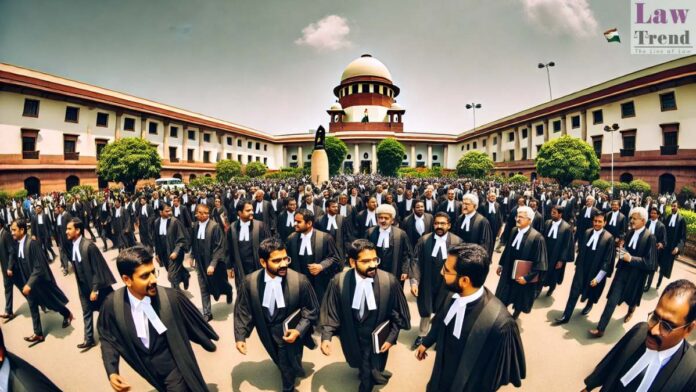The Supreme Court of India, in a significant judgment, has ruled that an investigating agency “cannot directly summon a lawyer appearing in a case to elicit the details of the case.” A bench comprising Chief Justice B. R. Gavai, Justice K. Vinod Chandran, and Justice N.V. Anjaria answered a reference on the issue with an
To Read More Please Subscribe to VIP Membership for Unlimited Access to All the Articles, Download Available Copies of Judgments/Order, Acess to Central/State Bare Acts, Advertisement Free Content, Access to More than 4000 Legal Drafts( Readymade Editable Formats of Suits, Petitions, Writs, Legal Notices, Divorce Petitions, 138 Notices, Bail Applications etc.) in Hindi and English.




